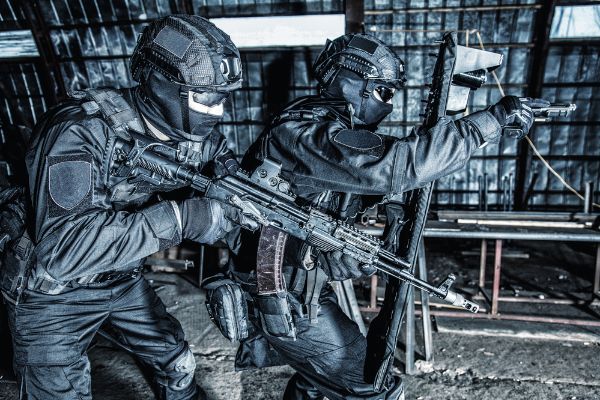
The inquiry into Bryan Malinowski’s alleged participation in the unauthorized sale of guns came to a head with the encounter. According to accusations, he purchased more than 100 weapons in the last several years and sold a large number of them. There were claims that several of the firearms had connections to illegal activity.
The ATF’s statement offered a thorough description of his dealings, including sales to undercover agents and involvement in gun fairs, without supplying the necessary documentation for the purchasers of the weapons.
The family of Malinowski questioned the necessity of conducting a pre-dawn raid in order to capture their cousin and chastised the ATF’s strategy.
“In a statement sent by their attorney, Mr. Malinowski’s family stated that they were confused by the actions of the government that had “led to a dawn raid on a private residence and sparked the use of fatal force.” The family continued by saying that even though they were “clearly disturbed about the charges in the affidavit,” they did not “justify what transpired.” At worst, the family suspected Bryan Malinowski, a gun enthusiast and owner, of privately selling firearms to someone who might not have had the necessary authorization.
The events that led to Malinowski’s demise have two obvious issues. First off, there is a good chance that the rules that make it more difficult for people to purchase and sell weapons violate the Second Amendment. It is the kind of gun regulation that leaves law-abiding gun owners more open to attack by violent criminals who do not give a damn about gun control laws. Under President Joe Biden in particular, the ATF has been leading the charge in enforcing the anti-gun lobby’s desires. It came to light in January that the president had used the ATF to target private firearms purchases.
Second, this incident begs the important question: Did the ATF need to take such drastic steps in order to capture Malinowski?
No one ever suspected that he was going to carry out a violent crime or help someone else who was going to do it. It is illogical to conduct a predawn raid in an attempt to apprehend him because his possession of firearms does not render him a dangerous criminal. The ATF could have easily waited until he left the house before making an arrest rather than setting up a scenario that would have resulted in a firefight, as is the case in many instances involving no-knock raids and other offensive operations.
Bryan Malinowski’s terrible death serves as a sobering reminder of how pointless laws unnecessarily breed more criminals and how police actions may put civilians in jeopardy. In situations like this, the police officers entrusted with making the arrests are in danger, in addition to the victims. This episode serves as further evidence for the need for America to reconsider its gun regulations and reexamine how law enforcement functions.
These content links are provided by Content.ad. Both Content.ad and the web site upon which the links are displayed may receive compensation when readers click on these links. Some of the content you are redirected to may be sponsored content. View our privacy policy here.
To learn how you can use Content.ad to drive visitors to your content or add this service to your site, please contact us at [email protected].
Family-Friendly Content
Website owners select the type of content that appears in our units. However, if you would like to ensure that Content.ad always displays family-friendly content on this device, regardless of what site you are on, check the option below. Learn More





